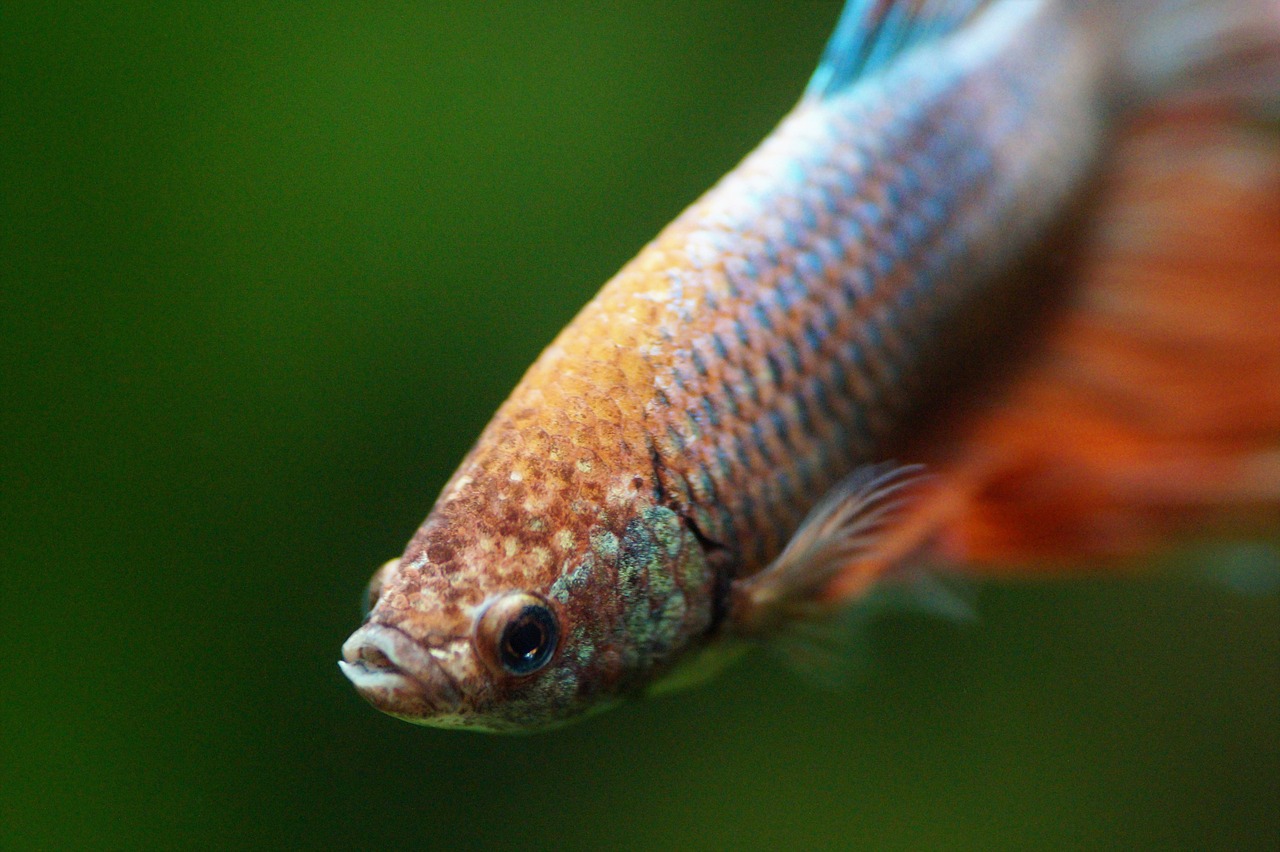Betta Fish Care Guide: Essential Tips for a Healthy Betta
Betta fish, also known as Siamese fighting fish, are among the most popular aquarium pets due to their vibrant colors and elaborate fins. Originating from the stagnant waters and rice paddies of Southeast Asia, Betta splendens are accustomed to warm, acidic water environments.
This betta fish care guide aims to provide comprehensive care instructions to ensure your Betta fish thrives in its new home.

Understanding Betta Fish
Bettas are known for their aggressiveness towards other males, which necessitates solitary housing to prevent harm. They possess a unique respiratory organ, the labyrinth, allowing them to breathe atmospheric air and survive in low-oxygen environments. Despite their hardy nature, Bettas require specific care to maintain their health and coloration.
Aquarium Setup
Tank Size: A common misconception is that Betta fish can live in small bowls or vases. However, a minimum of a 5-gallon tank is recommended to provide adequate space for swimming and exploration. Larger tanks are easier to maintain stable water conditions and reduce stress on the fish.
Water Conditions: The ideal water temperature for Betta fish is between 76°F and 82°F. Use an aquarium heater to maintain a consistent temperature, especially in cooler climates. A pH level between 6.5 and 7.5 is optimal, with a water hardness of 3 to 4 dGH. Regular use of a water conditioner is necessary to remove harmful chlorine and chloramines from tap water.
Filtration: Gentle filtration is required to keep the water clean while avoiding strong currents that can stress Betta fish. Sponge filters are an excellent choice for Betta tanks.
Tank Decorations: Silk or live plants, along with hiding spots like caves or driftwood, provide a natural environment and reduce stress. Avoid decorations with sharp edges that can tear the delicate fins of Betta fish.
Diet and Nutrition
Bettas are carnivorous and require a diet rich in protein. High-quality Betta pellets should form the basis of their diet, supplemented with frozen or live foods such as brine shrimp, daphnia, and bloodworms. Overfeeding can lead to health issues; feed small amounts once or twice a day, only as much as the fish can consume in a few minutes.
Health and Wellness
Regular monitoring for signs of distress or disease is crucial. Common health issues include fin rot, fungal infections, and ich. Prompt water changes and treatment with aquarium salt or specific medications can address these conditions.
Water Changes and Maintenance
Weekly water changes of 20-25% are recommended to remove toxins and keep the environment clean. Avoid complete water changes as they can disrupt the beneficial bacterial balance necessary for a healthy aquarium. Test the water parameters regularly with a water testing kit to ensure they remain within the desired ranges.
Social Needs
While Bettas should not be housed with other male Bettas, they can sometimes live with peaceful, non-nipping fish species in larger aquariums. However, each Betta’s temperament varies, and careful observation is required to ensure compatibility. Solitude does not equate to loneliness for Bettas, and they often thrive as the sole fish in their tanks.
Betta Fish Care Guide – Understand Your Pet
Proper Betta fish care involves understanding their specific needs and natural behaviors. By providing a suitable environment, a balanced diet, and regular maintenance, you can ensure your Betta fish lives a healthy and vibrant life. Remember, responsible pet ownership starts with education and a commitment to providing the best care possible for your aquatic companion.
